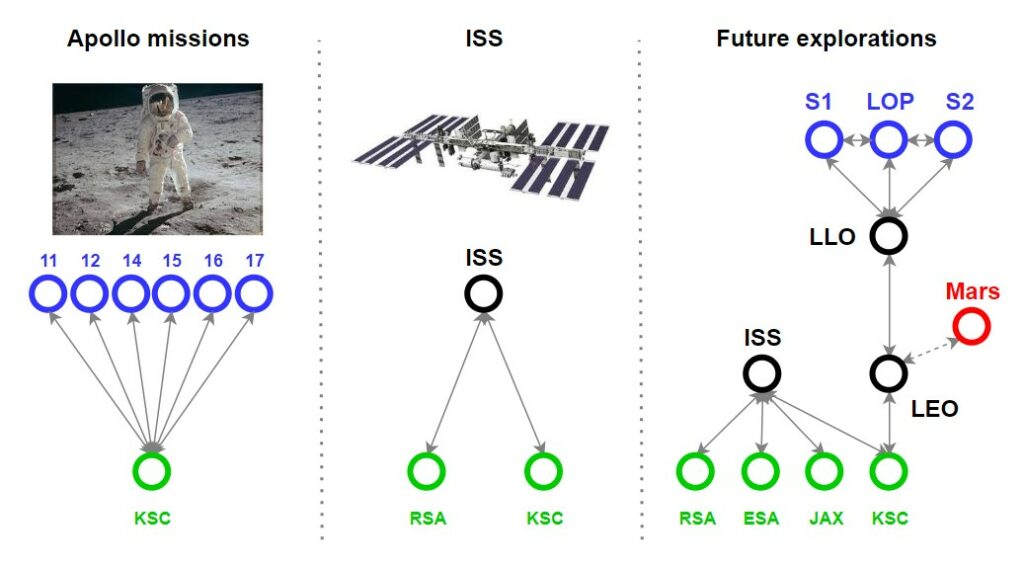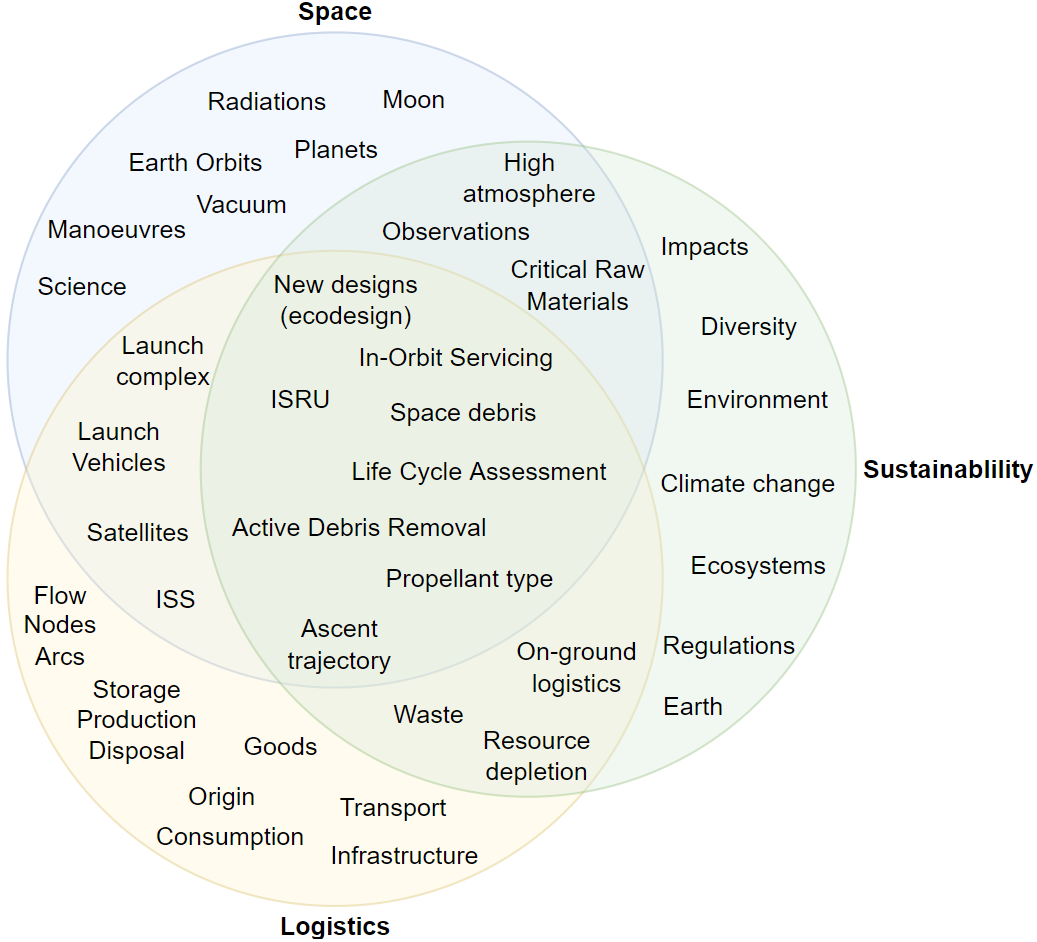In recent years, the space industry has undergone profound changes that affect the way we reach and use space. This changing industry, known as New Space, includes standardized satellite formats and reusable launch vehicles that are driving costs down. There are also satellite constellations that can map the Earth in one day, or provide internet everywhere. Similarly, space agencies' renewed attention to the Moon and the idea of in-situ resources utilisation (ISRU) emphasises new logistics approaches. Space logistics amplifies key issues, like space debris, and brings new opportunities, such as on-orbit servicing and active debris removal (ADR). These changes have had and will continue to have deep implications for sustainability.
There has also been a shift in the way space logistics is imagined, and soon, in how it will be implemented (see figure below). For early exploration missions like the Apollo program, the paradigm was to “carry-along” all necessary resources for the trip. With the construction of the international space station (ISS), many “re-supply” cargo vessels or capsules can be launched from Earth. In the future, complex missions will require a combination of “carry-along” and “re-supply” strategies and may take advantage of ISRU, with goods travelling from and to several celestial bodies and orbits, called nodes.

Source: MIT Space Logistics Project

In the current context, eSpace’s strategy is to be positioned at the crossroad of these topics to better integrate these new perspectives in research. Indeed, the theme of space logistics is still largely untouched and will be the backbone of multiple large-scale applications.
We set ourselves the high-level objectives to:
- Create and support research initiatives to drive innovation and contribute to Swiss know-how in space logistics.
- Build communities around selected research subjects coupled with specific projects, by federating and coordinating research across Switzerland, while including industry players and space agencies as key partners.
- Develop talents and inspire new vocations, with attractive projects for researchers and students.